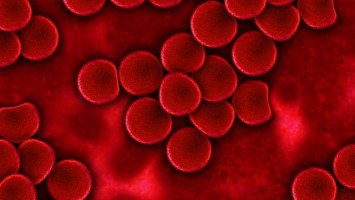
Around 600 children under the age of 15 are diagnosed with leukaemia each year in Germany.
The effects are especially dramatic if this severe illness develops at birth or shortly afterwards.
Research carried out at the Division of Genetics at Friedrich-Alexander-Universität Erlangen-Nürnberg (FAU) with support from the Institute for Human Genetics has now discovered another molecular cause for a particularly aggressive type of leukaemia in infants.
The results have been published in the journal Blood.
While tumours tend to affect the health of older people, leukaemia (blood cancer) frequently affects children.
A special type of leukaemia, which is particularly difficult to treat and often occurs in very young patients, is the subject of research carried out by Prof. Robert Slany and his team at the Division of Genetics at FAU.
With this type of cancer, the genes in the white blood cells affected change slightly, causing two chromosomes to cross.
This produces an abnormal protein that disrupts cell growth control.
"The longer we study these classes of proteins, the clearer it becomes how adept these molecules are at interfering with cellular growth to such an extent that makes normal control virtually impossible," says Prof. Slany.
The latest research results show that these proteins not only disrupt the production mechanism of the cells by accelerating the transcription mechanism of certain genes, but also change the structure of the gene itself, which intensifies the abnormal implementation of the genetic information even further.
"It's like driving a car on black ice - braking is impossible," explains Prof. Slany.
The challenge for the future now lies in finding a suitable type of 'grit' for this black ice that slows down the proliferation of leukaemia cells to normal levels without damaging the other healthy cells in the body.
Source: University of Erlangen-Nuremberg
We are an independent charity and are not backed by a large company or society. We raise every penny ourselves to improve the standards of cancer care through education. You can help us continue our work to address inequalities in cancer care by making a donation.
Any donation, however small, contributes directly towards the costs of creating and sharing free oncology education.
Together we can get better outcomes for patients by tackling global inequalities in access to the results of cancer research.
Thank you for your support.